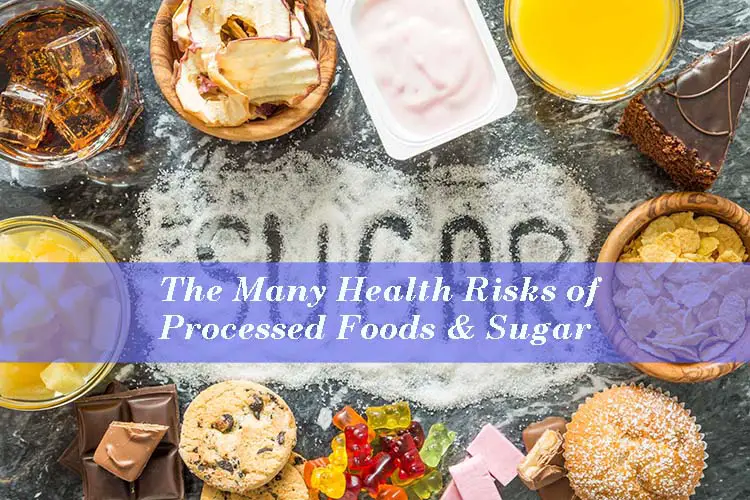In recent years, the consumption of sugar and processed foods has become increasingly prevalent in our daily diets. While these food choices may provide convenience and enjoyment, they also pose significant risks to our health. In this blog post, we will explore the impact of sugar and processed foods on our health and provide valuable insights to help readers make healthier choices.
I. The Connection between Sugar and Chronic Disease:
- Increased Risk of Obesity: Diets high in added sugars contribute to excess calorie intake and weight gain, ultimately increasing the risk of obesity, a major risk factor for chronic diseases.
- Type 2 Diabetes: High sugar consumption significantly raises the risk of developing type 2 diabetes, as it can lead to insulin resistance and impaired glucose metabolism.
- Cardiovascular Health: Elevated sugar intake has been associated with an increased risk of heart disease, including high blood pressure, abnormal cholesterol levels, and inflammation.
- Liver Health: Excessive sugar consumption can lead to fatty liver disease, insulin resistance, and non-alcoholic fatty liver disease (NAFLD).
II. Processing and Its Impact on Nutrition:
- Nutrient Loss: The processing of foods often involves the removal of essential nutrients such as vitamins, minerals, and fiber, reducing their nutritional value.
- High in Added Sugars and Unhealthy Fats: Processed foods are often loaded with added sugars and unhealthy fats to enhance flavor and extend shelf life, contributing to weight gain, inflammation, insulin resistance, and other health issues.
- Increased Salt/Sodium Intake: Processed foods are notorious for their high sodium content, which raises blood pressure and increases the risk of hypertension and cardiovascular diseases.
- Artificial Ingredients and Additives: Many processed foods contain artificial colors, flavors, preservatives, and other additives that may have adverse effects on health, such as allergies, hyperactivity, and potential long-term risks.
III. Practical Tips for Making Healthier Choices:
- Read Food Labels: Pay attention to the ingredient list and nutritional information on food packaging, looking for items low in added sugars, unhealthy fats, and artificial additives.
- Stick to Whole Foods: Focus on consuming whole, unprocessed foods such as fruits, vegetables, whole grains, lean proteins, and dairy products, which are naturally nutrient-rich and contain no added sugars or unhealthy additives.
- Cook and Prepare Meals at Home: Home-cooked meals give you control over the ingredients, allowing you to reduce added sugars, unhealthy fats, and artificial additives.
- Limit Sugary Beverages: Swap sugary drinks for healthier alternatives like water, herbal tea, or homemade smoothies, as beverages are often a significant source of hidden sugars.
- Opt for Healthy Snacks: Replace processed snacks with whole-food options like nuts, seeds, fruits, vegetables, and homemade energy bars or trail mixes.
- Be Mindful of Portion Sizes: Even when choosing healthier options, moderation is key. Practice portion control to prevent excessive calorie intake.
- Be Wary of Hidden Sugars: Be aware that added sugars can hide under various names on ingredient lists, such as sucrose, high-fructose corn syrup, agave nectar, or maltose.
IV. The Power of Mindful Eating:
- Practice Mindful Eating: Slow down and savor your meals, allowing yourself to fully enjoy the flavors and textures of whole, unprocessed foods.
- Listen to Your Body: Pay attention to hunger and fullness cues, allowing your body to guide your portion sizes and eating patterns.
- Seek Support: Consider seeking guidance from a registered dietitian or nutritionist who can provide personalized recommendations and support in making healthier choices.
Conclusion:
The impact of sugar and processed foods on our health is significant, with links to obesity, diabetes, cardiovascular diseases, and other health complications. By understanding the risks associated with these dietary choices, we can make informed decisions to prioritize our health. Incorporating practical tips such as reading food labels, focusing on whole foods, and practicing mindful eating can empower us to make healthier choices and improve overall well-being. By reducing sugar and processed food consumption, we can pave the way for a healthier future.

